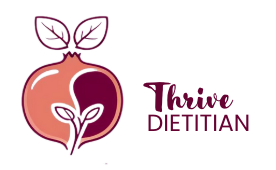
Frequently Asked Questions
About Dietitians
What does a dietitian actually do?
A dietitian helps you understand how food and nutrition can support your health. We don’t believe in fad diets or quick fixes—we focus on evidence-based advice that’s realistic for your lifestyle. Whether it’s managing weight, improving energy, or preparing for pregnancy, we give you practical strategies that work in everyday life.
Do I need a GP referral to see a dietitian?
No, you don’t need a referral. You can book straight in with us. If your doctor has given you a Chronic Disease Management Plan (CDMP), you may be eligible for Medicare rebates.
What’s the difference between a dietitian and a nutritionist?
All dietitians are nutritionists, but not all nutritionists are dietitians. An Accredited Practising Dietitian (APD) has completed university-level training and is regulated by professional standards. Choosing a dietitian means you know the advice is safe, evidence-based, and tailored to you.
What can a dietitian help with?
A dietitian can support you with:
Weight management (without restrictive dieting)
Digestive issues such as IBS, bloating, or coeliac disease
Diabetes and heart health (cholesterol, blood pressure)
Healthy eating for more energy and focus
Fertility and preconception nutrition
Pregnancy and postpartum nutrition
Fertility & Women’s Health
How can a dietitian help with fertility?
Your diet and lifestyle play a huge role in hormone balance, egg and sperm quality, and preparing your body for pregnancy. Working with a fertility dietitian can improve your chances of conceiving naturally or through treatments like IVF or IUI.
Do you help with conditions like PCOS and endometriosis?
Yes—we see many women with PCOS, endometriosis, thyroid conditions, and other health issues that can affect fertility. With the right nutrition strategies, we can help support hormone balance, reduce inflammation, and improve cycle health.
Do you work with men too?
Definitely. Male fertility is just as important, and nutrition has a big impact on sperm quality and DNA health. We often see couples together to make sure both partners are supported.
When should I see a fertility dietitian?
The ideal time is at least three months before trying to conceive, because it takes that long for eggs and sperm to fully develop. But if you’re already trying—or even going through IVF—it’s never too late to benefit from personalised nutrition advice.
Can you help during pregnancy?
Yes. Pregnancy comes with lots of changes, and a dietitian can help you manage morning sickness, gestational diabetes, cravings, safe weight gain, and ensuring you and your baby are getting all the right nutrients.
Practical Details
Do you offer online appointments?
Yes—we offer both in-person and telehealth consultations. If you’re busy, live outside the Central Coast, or prefer the convenience of online, you can still access expert nutrition support.
Can I claim through Medicare or private health?
If your GP provides a Chronic Disease Management Plan, you may receive Medicare rebates for dietitian visits. Many private health funds also offer rebates—check your policy for details.
How many sessions will I need?
It depends on your goals. Some people just want one or two sessions for a plan they can follow, while others—especially with fertility or chronic health conditions—find ongoing support makes a big difference. As we focus on making small meaningful changes and add on adjustments and personalise through each session ongoing reviews mean you have more support to reach and maintain your goals.
What should I bring to my first appointment?
Please fill in the intake form, the link will be found in your confirmation email. This helps us make the most of the appointment time together. Bring along any recent blood test results, a list of your current medications or supplements, and (if you can) a short food diary. Don’t stress if you don’t have these—we’ll guide you through everything.
👉 Still have questions? Get in touch

